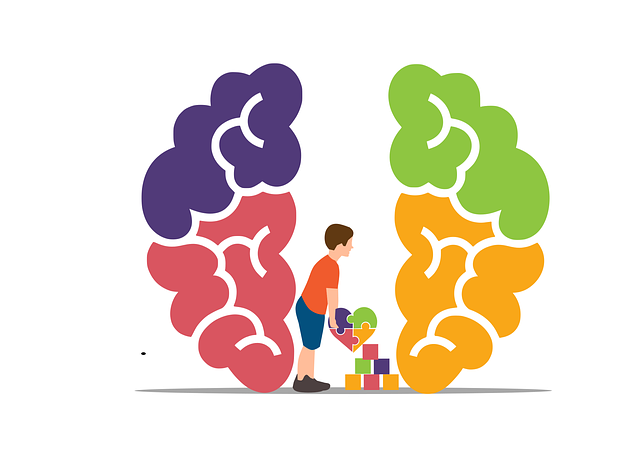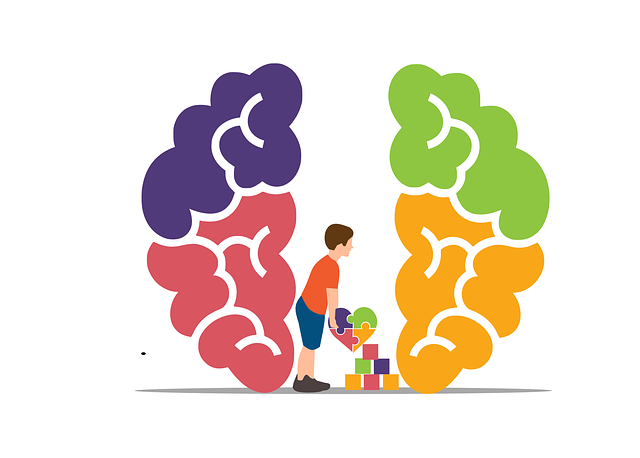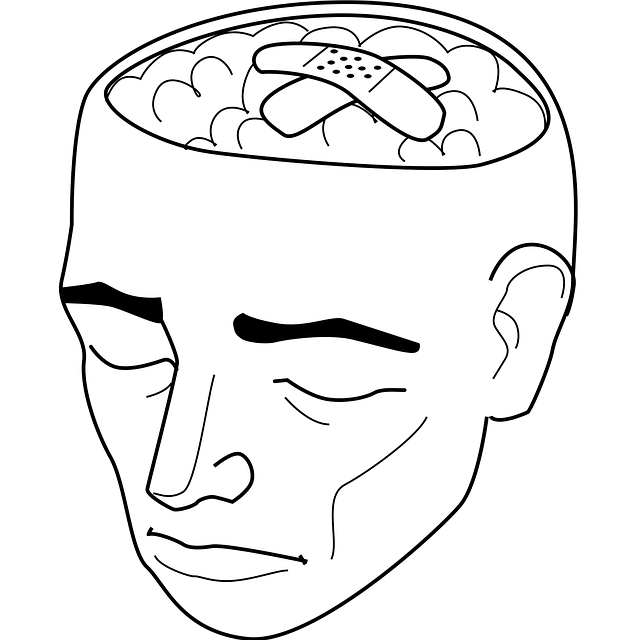Englewood Chronic Pain Therapy provides a comprehensive approach to managing mental health conditions, especially chronic pain, by addressing both physical and social needs. Their Social Skills Training focuses on self-awareness, inner strength, communication strategies, and empathy building. This holistic program empowers individuals to navigate social interactions confidently, reduce isolation, and improve overall well-being. Through tailored role-playing and group discussions, patients gain effective coping strategies, enhance support networks, and foster a sense of belonging within their communities. Case studies demonstrate significant improvements in emotional health and quality of life for participants.
Social skills training is a powerful tool for improving mental health outcomes, especially in individuals managing chronic conditions like pain. This comprehensive guide explores how enhancing social interactions can positively impact mental well-being. We delve into specific strategies tailored for those with mental health challenges, offering insights from Englewood Chronic Pain Therapy’s successful case studies. By understanding the role of social skills, we can navigate common barriers and foster supportive environments, ultimately revolutionizing care and quality of life for affected individuals.
- Understanding Social Skills and Their Impact on Mental Health
- The Role of Social Skills Training in Chronic Pain Management
- Identifying Challenges: Common Social Interactions and Mental Health Barriers
- Effective Strategies for Enhancing Social Skills in Individuals with Mental Health Conditions
- Case Studies: Success Stories from Englewood Chronic Pain Therapy
Understanding Social Skills and Their Impact on Mental Health

Social skills are a crucial aspect of our daily lives and play a significant role in our overall well-being, especially for individuals managing mental health conditions. They encompass a range of abilities, from effective communication and active listening to empathy and conflict resolution. At Englewood Chronic Pain Therapy, we recognize that social interactions can be challenging for many with chronic pain or other mental health struggles, often leading to feelings of isolation and loneliness.
Developing robust social skills is essential for fostering meaningful connections, enhancing support systems, and promoting positive mental health outcomes. Our approach involves tailored self-awareness exercises and strategies for inner strength development. By teaching individuals how to navigate social situations with confidence and grace, we empower them to engage in public awareness campaigns development, both as participants and contributors, thereby enriching their lives and communities.
The Role of Social Skills Training in Chronic Pain Management

Social Skills Training plays a pivotal role in managing chronic pain, an area often overlooked within Englewood Chronic Pain Therapy. Beyond addressing the physical symptoms, this therapeutic approach targets the psychological and social aspects that significantly impact individuals living with long-term pain. By honing social skills, patients become better equipped to navigate interactions, fostering a sense of belonging and support crucial for their well-being.
Reducing the stigma associated with mental health conditions, particularly in the context of chronic pain, is an integral part of these training programs. Mental Illness Stigma Reduction Efforts focus on creating understanding and empathy within communities, contributing to Public Awareness Campaigns Development. This holistic approach not only enhances coping strategies but also encourages individuals to actively participate in society, thereby improving their quality of life.
Identifying Challenges: Common Social Interactions and Mental Health Barriers

Many individuals living with mental health conditions face challenges in social interactions due to a variety of factors. These can include anxiety, depression, or other symptoms that may hinder their ability to engage in everyday conversations and build connections. At Englewood Chronic Pain Therapy, we recognize that these social barriers can significantly impact one’s overall well-being and quality of life. Common social interactions, such as small talk, maintaining eye contact, or expressing emotions, can become daunting tasks for those struggling with mental health issues.
Cultural competency training for healthcare providers plays a crucial role in understanding and addressing these challenges. By equipping professionals with the knowledge to recognize and accommodate diverse cultural needs, they can create safer and more inclusive environments for individuals seeking support. Mental Health Policy Analysis and Advocacy also contributes to breaking down barriers by pushing for policies that promote access to quality care and address systemic issues affecting emotional healing processes.
Effective Strategies for Enhancing Social Skills in Individuals with Mental Health Conditions

Social skills training is a powerful tool for individuals with mental health conditions, offering effective strategies to enhance their interactions and overall well-being. At Englewood Chronic Pain Therapy, we focus on providing tailored support to help clients navigate social challenges. One key approach involves teaching communication strategies. Simple yet impactful techniques, such as active listening and clear, concise speech, can facilitate meaningful conversations and foster a sense of belonging.
Additionally, incorporating empathy building strategies is vital. Encouraging individuals to recognize and understand their own emotions, as well as those of others, promotes deeper connections and improves social interactions. Through role-playing exercises and group discussions, clients learn to manage their mood effectively while engaging in empathetic exchanges, ultimately strengthening their support networks.
Case Studies: Success Stories from Englewood Chronic Pain Therapy

Englewood Chronic Pain Therapy has successfully implemented social skills training as a cornerstone of their mental health treatment programs. Through case studies, it’s evident that this approach has yielded significant improvements in patients’ emotional well-being and overall mental health. For instance, a study focusing on individuals with chronic pain conditions revealed remarkable results after participating in group therapy sessions designed to enhance social interactions. These sessions not only helped participants develop effective self-care routines for better mood management but also promoted emotional well-being through new coping strategies and improved communication skills.
The program’s success highlights the power of combining traditional therapy techniques with social skill development. By fostering a supportive environment, Englewood Chronic Pain Therapy enables patients to build resilience, enhance their support networks, and gain confidence in navigating social situations. This holistic approach has proven to be a game-changer, offering lasting benefits that extend far beyond the treatment setting, ultimately contributing to improved quality of life for those managing mental health conditions.
Social skills training has proven to be a powerful tool in managing mental health conditions, particularly chronic pain. As evidenced by case studies at Englewood Chronic Pain Therapy, enhancing social connections and communication can significantly improve quality of life. By addressing common challenges in social interactions, individuals with mental health issues can develop the necessary skills to navigate social situations more effectively. This, in turn, fosters a sense of belonging and supports overall mental well-being. Embracing evidence-based strategies tailored to their unique needs enables those affected to reclaim their lives and find support within their communities.













